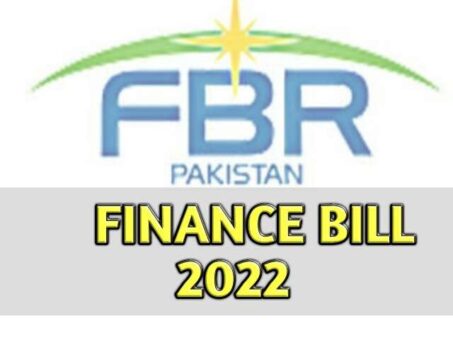ISLAMABAD: The Federal Board of Revenue (FBR) has said all pressing demands of IT sector have been accepted in the budget 2022/2023.
In a statement issued on Monday, the FBR has taken an exception to a statement issued by Pakistan Software Houses Association (P@SHA) dated June 25, 2022.
It has reported some facts regarding the exemptions/tax incentives / facilitation given to the IT and IT enabled export services through the Federal Budget 2022, tabled in the National Assembly on June 10, 2022.
READ MORE: Pakistan’s salaried class unhappy over new tax changes
Clarifying its position, FBR has stated that in the wake of the Budget, some important meetings were held with the representatives of IT sector through Pakistan Software Export Board (PSEB) and also with Federal Minister for IT, Syed Amin-Ul-Haque, and his team. During these meetings, almost all the key demands of the IT Sector were thoroughly deliberated and largely agreed.
FBR has further clarified that the amended Finance Bill will incorporate some tangible measures to facilitate the exporters of IT and IT enabled services. Almost all the pressing demands of the IT Sector have been accepted. The same have been announced in the speech by the Federal Finance Minister on 24th June, 2022 on the floor of the National Assembly.
These include the following six key concessions:
READ MORE: Pakistan reduces salary tax slabs to 7 in budget 2022/23
i) The sector has been provided a reduced tax rate of 0.25% on their export proceeds which is a quarter of the 1% export tax rate provided to all other exporters of goods.
ii) The sector has been removed from tax credit regime to simplify the tax filing system and to remove hassles of compliance that were earlier required to make them eligible for 100% tax credit to claim tax exemption.
iii) The requirements of filing of Withholding Tax Statements and Sales Tax return have been liberalized for the sector and only those who are required under the law will file WHT Statements or the Sales Tax Returns. For individuals having turnover up to Rs. 100 m per year there is no requirement to file WHT Statement or to deduct tax.
READ MORE: Pakistan reduces salary tax slabs to 7 in budget 2022/23
iv) The definition of IT and IT enabled services as provided under the Income Tax Ordinance, 2001 has been liberalized by expanding its scope by making suitable amendments and all inclusive, and “not limited to” definition has been provided.
v) IT and IT enabled services exporters have been provided the facility of obtaining Sales Tax refund in respect of any Sales Tax that has been paid as their input on computers, laptops, stationary other items etc. This facility is not available under the Provincial Sales Tax Law.
vi) The demand of the IT Sector of reviving tax exemption for Venture Capital Fund has been accepted and a new provision has been created for providing Income Tax Exemption to the Venture Capital Fund for three years.
READ MORE: Massive cut in subsidies to curtail current expenditures
It is pertinent to mention that the above exemptions and tax facilitations to boost exports of IT and IT enabled services were agreed and discussed in the meetings with the Federal Minister for IT, Syed Amin-Ul-Haque, and the representatives of the PSEB. It appears that the above statement given by P@SHA is on account of lack of information about the outcome of the decisions taken by the Honorable Finance Minister in that meeting and announced accordingly.




